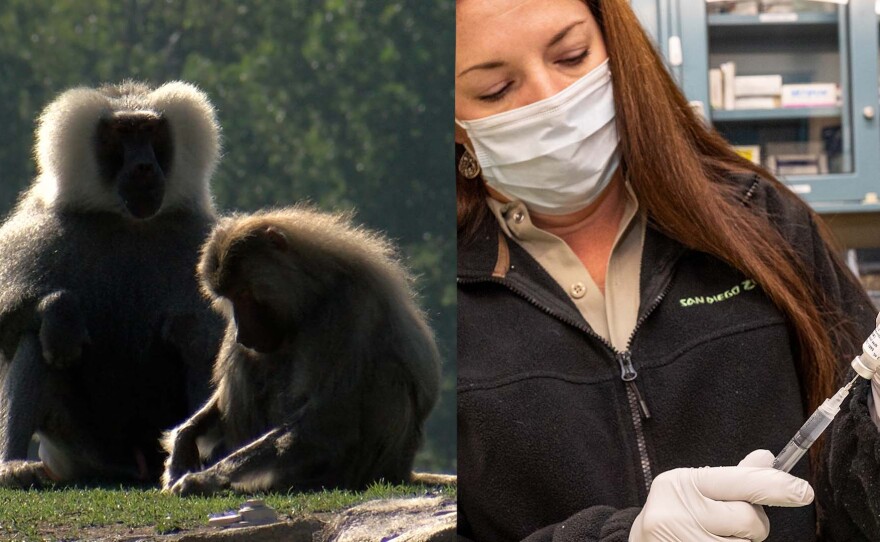Cases of coronavirus in animals have been popping up at zoos across the country. In November, three snow leopards died from complications relating to the virus at a Nebraska zoo, but not every animal is at risk.
"The past 20 months have really been quite interesting for us," said Dr. Nadine Lamberski, chief conservation and wildlife health officer at the San Diego Zoo.
The Zoo saw its first reported COVID-19 case in January.
"We had the first reported case in gorillas," Lamberski said. "But since then, there have been zoos around the world that have had positive cases not only in gorillas and tigers but in cougars. Snow leopards seem to be particularly susceptible to the virus."

Lamberski has been leading efforts to protect animals from the same virus that's killed millions of humans.
"We know from scientific studies that carnivores — particularly cats — big cats and primates are extremely susceptible to this virus," she said.
Between the Zoo's main location and its Escondido Safari Park, just over 20 cases have been confirmed in animals. They include tigers, gorillas and snow leopards. Staff usually are not able to get a nasal swab, so they test using fecal matter. Lamberski said sick animals have symptoms similar to humans.
"Some animals just go off food. Some are lethargic. Some develop a cough. Some develop a fever. Some develop all those things on different days," she said. "Each case has been a little bit unique, but we're very fortunate that all of the wildlife in our care that have contracted the virus have recovered."
Cases are believed to come from infected staff who are asymptomatic and working closely with animals. Over the summer, two snow leopards tested positive.
"And it was a very, very tense time not knowing which way they were going to go, and this was prior to them being fully vaccinated," Lamberski said. "They have since recovered."
The San Diego Zoo was one of the first to begin using a COVID-19 vaccine approved for animals. And since the beginning of the year, around 260 animals, including tigers, cheetahs, jaguars, mountain lions, leopards, gorillas, baboons, vervet monkeys and hyenas, have been vaccinated.
Lamberski said they used all their supply, but booster doses could be considered if more became available.
"Particularly because of the new variants coming out," she said. "And we would want to give our animals the best chance to fight off that infection so that they can have the best lives possible."
Zoo staff wear face coverings and try to limit time spent indoors around animals. There have been some breakthrough infections in some that were already vaccinated, but their symptoms were mild.






